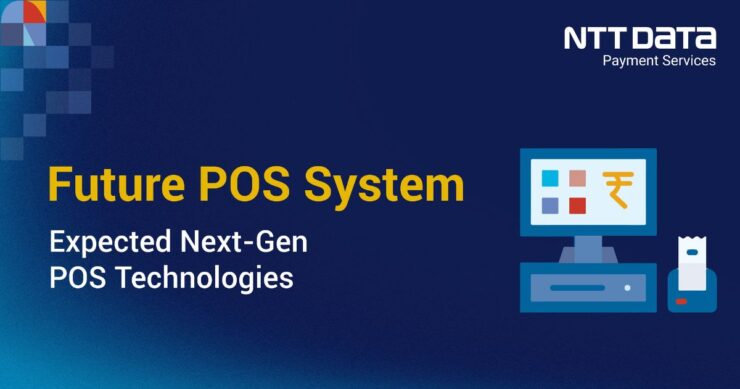
Table of Contents
- 1 Understanding POS system in detail
- 2 Recent Web Stories
- 3 Top 10 Features of Future POS Systems
- 3.1 1. Mobile and Cloud-Based POS
- 3.2 2. Artificial Intelligence and Machine Learning
- 3.3 3. Omnichannel Inventory Management
- 3.4 4. Enhanced Payment Options
- 3.5 5. Analytics and Business Intelligence
- 3.6 6. Integrated Loyalty and CRM Programs
- 3.7 7. Self-Checkout Options
- 3.8 8. Multi-Store Management
- 3.9 9. Open APIs
- 3.10 10. Eco-Friendly Solutions:
- 4 Get The Latest POS for Your Business Growth
- 5 The Future of POS Systems
- 6 Future POS System: FAQs
Point-of-sale (POS) systems have come a long way from the early cash registers. In this blog, we will explore the future POS system technologies that aim to meet your business needs.
Understanding POS system in detail
As technology advances, expectations for next-generation POS systems also rise. Customers demand fast, seamless, and personalised experiences, whether online or in-store. Meanwhile, businesses seek solutions that enhance operations, drive sales, and provide actionable insights.
What is the future of the POS system?
The future of POS systems involves transitioning to mobile and cloud-based technologies. Small businesses will adopt smartphone and tablet-based POS solutions because they are affordable and easy to use.
Larger retailers will adopt fully integrated POS systems that interface with cloud-based inventory, CRM, and analytics software. This will allow for more data-driven decision-making, personalised customer experiences, and omnichannel commerce opportunities.
Recent Web Stories
Top 10 Features of Future POS Systems
Here are 10 key next-gen POS technologies expected to shape the Future POS System:
1. Mobile and Cloud-Based POS
Completely mobile and cloud-based POS systems are gaining traction. These Future POS Systems allow retailers to take payments from any location using just a mobile device or tablet. All transaction data is stored securely in the cloud, giving employees real-time access from anywhere.
This enables retailers to better serve customers both in-store and online. It also provides flexibility for pop-up shops, curbside pickup, and other emerging retail formats. Major POS vendors like Square, Clover, and Shopify are leading the charge with fully mobile and cloud-based POS platforms.
2. Artificial Intelligence and Machine Learning
Artificial intelligence (AI) and machine learning capabilities are being integrated into POS systems to deliver personalised experiences and actionable insights. For example, AI can analyse past purchase data to provide customised product recommendations and targeted offers to each customer. It can also predict demand trends and inventory needs.
Some future POS systems will use AI to monitor in-store traffic patterns and notify staff in slow areas. Machine learning helps POS systems constantly optimise based on new data. As AI/ML technologies advance, expect Future POS Systems to get smarter at understanding customer behaviour and operations.
3. Omnichannel Inventory Management
Modern retail demands seamless inventory visibility and management across all sales channels. Future POS Systems will offer robust omnichannel order management and fulfilment capabilities. They will integrate tightly with e-commerce platforms to provide a single view of real-time inventory levels, orders, and stock locations.
Whether products are being purchased in-store, online, or through alternative channels like buy online pickup in-store. This unified inventory management allows retailers to offer customers a consistent experience while maximising sales in all channels.
4. Enhanced Payment Options
Future POS Systems will support an even wider range of payment types to accommodate evolving customer preferences. Beyond traditional cards, look for expanded support of digital wallets, buy now, pay later options, cryptocurrencies, and other alternative payment methods.
Contactless and mobile payments are also gaining ground quickly due to COVID-19 accelerating the shift away from cash. Integrating robust and flexible payment processing will be critical for future POS platforms.
5. Analytics and Business Intelligence
Actionable analytics and business intelligence capabilities will be a core component of Future POS Systems. Built-in reporting and dashboard tools will offer deep insights into key metrics like sales, traffic, inventory, labour, etc.
Real-time alerts can notify managers of issues like out-of-stock. Analytics can also help optimise staffing, pricing, and promotions. With so much transaction and customer data available, future POS platforms must help retailers efficiently glean strategic insights to improve operations and the bottom line.
6. Integrated Loyalty and CRM Programs
Future POS Systems will tightly integrate loyalty programs, CRM, and personalised marketing. Customer purchase histories and profiles will automatically populate loyalty profiles. Sales staff can then provide rewards, targeted offers, and customised service based on each customer’s preferences and transaction history.
Loyalty data can also feed into CRM for tailored email/app campaigns. The goal is to foster long-term customer relationships and maximise lifetime value through more relevant 1:1 engagement at every touchpoint.
7. Self-Checkout Options
Self-checkout kiosks and mobile checkout will be standard features of future POS systems. Customers increasingly demand convenience and control over the checkout process. Self-checkout allows them to complete purchases on their own schedule without waiting in line.
For retailers, it can help reduce labour costs and increase transaction volumes at peak times. Future POS platforms must support a variety of assisted and unassisted self-checkout options that are fast, easy to use and integrate with existing payment and inventory systems.
8. Multi-Store Management
Running multiple retail locations demands a Future POS System that provides unified oversight and control. Corporate managers need real-time visibility into sales, inventory, labour costs and more across all stores.
They also require flexible tools to push updates, set policies, and monitor compliance remotely. Future POS platforms will offer robust multi-store management dashboards and APIs to help large retailers efficiently oversee expansive operations. This is key for overseeing everything from small neighbourhood shops to vast national chains.
9. Open APIs
Future POS Systems will feature open APIs to facilitate seamless integration with a variety of third-party applications. This allows retailers to pick and choose best-of-breed point solutions for specific needs like CRM, inventory, loyalty, accounting, and more.
Open APIs future-proof the POS investment and empower flexibility. They also encourage developers to build complementary applications that extend POS functionality. This ecosystem approach keeps POS platforms continuously innovating to meet the evolving demands of modern omnichannel retail.
10. Eco-Friendly Solutions:
Future point-of-sale (POS) systems will prioritise sustainability, stressing the need to minimise paper use by utilising digital receipts, cut down on energy use, and include eco-friendly practices in the design and production of hardware.
The adoption of energy-efficient technology also seeks to maximise resource efficiency and minimise ecological damage. This coordinated effort reflects a fundamental change in industry practices toward a more environmentally sensitive approach to corporate operations and is consistent with a larger push towards tech-driven environmental sustainability.
Get The Latest POS for Your Business Growth
As the leader in POS solutions, NTT DATA Payment Services is committed to delivering the next generation of POS technologies for our clients. We closely monitor emerging trends to ensure our products evolve along with changing customer demands and industry innovations.
NTT DATA Payment Services offers a complete payment solution to advance both your offline and online businesses from,
- Online Payment Gateway India
- POS machines
- IVR payments
- Mobile applications, and
- Bharat QR Scan and Pay
We ensure maximum comfort, convenience, and safety for all your payments.
The Future of POS Systems
New technologies are rapidly transforming the Future POS System. Mobile, cloud, AI, analytics, self-checkout, omnichannel capabilities, and more will define the next generation of POS platforms.
Retailers need flexible, feature-rich POS solutions that power engaging customer experiences while delivering actionable business insights. Vendors delivering on this future vision will lead the charge in shaping the POS systems of tomorrow.
| Also, you can get frequent updates on nttdatapayments Instagram page. |
Future POS System: FAQs
1. How will mobile POS systems evolve in the future?
Mobile POS systems will become more lightweight, portable and integrated with digital payment options. Features like inventory management, analytics, customer management, etc., will be available on mobile POS apps.
2. How can POS data help businesses?
POS data combined with analytics can provide valuable insights into sales, customers, inventory, etc., to optimise strategies, drive efficiencies and gain competitive advantages.
3. What are some examples of AI applications in future POS?
AI can power tasks like predictive analytics, personalised recommendations, computer vision-based inventory management, conversational commerce, fraud detection and automated customer support.
4. What payment options are expected to gain more adoption?
Digital wallets, buy-now-pay-later options, and contactless payments using technologies like NFC and RFID are expected to see higher adoption in future POS systems.
5. What are some challenges in adopting new POS technologies?
Cost, change management, integration with legacy systems, and skill upgrade requirements are some potential challenges businesses may face in transitioning to new POS technologies.







